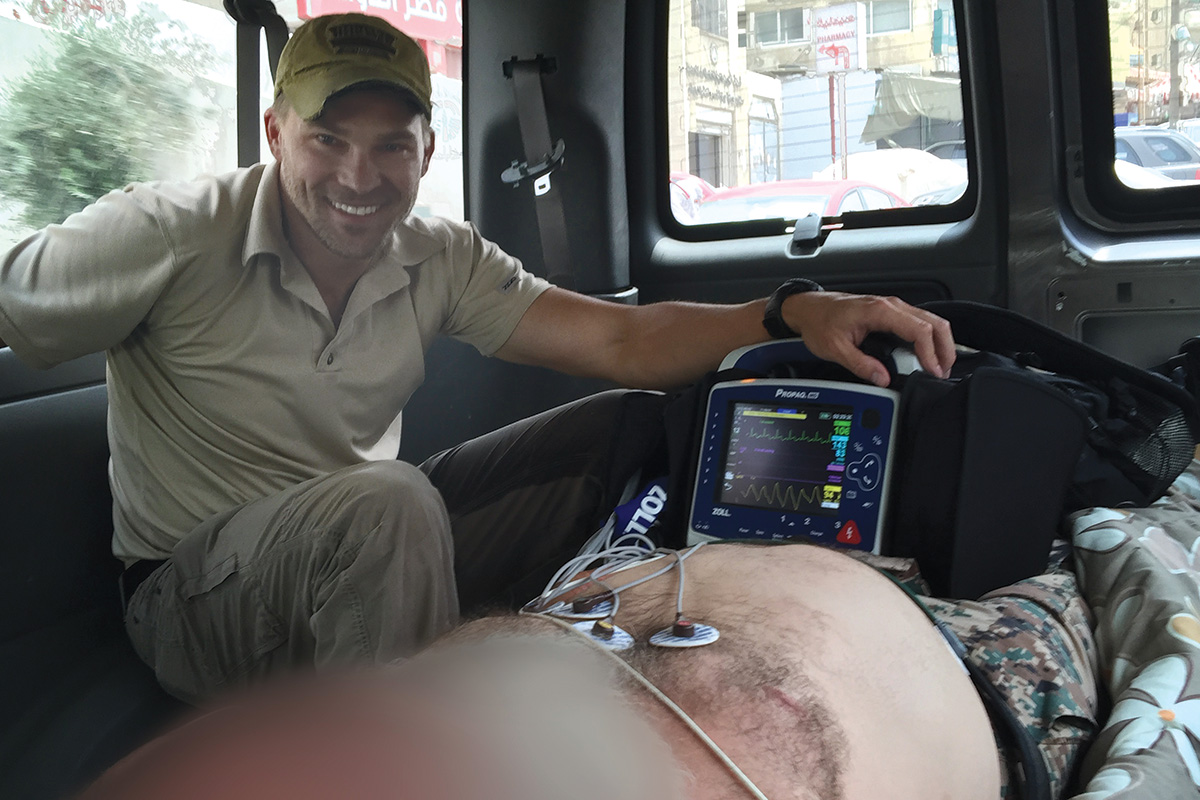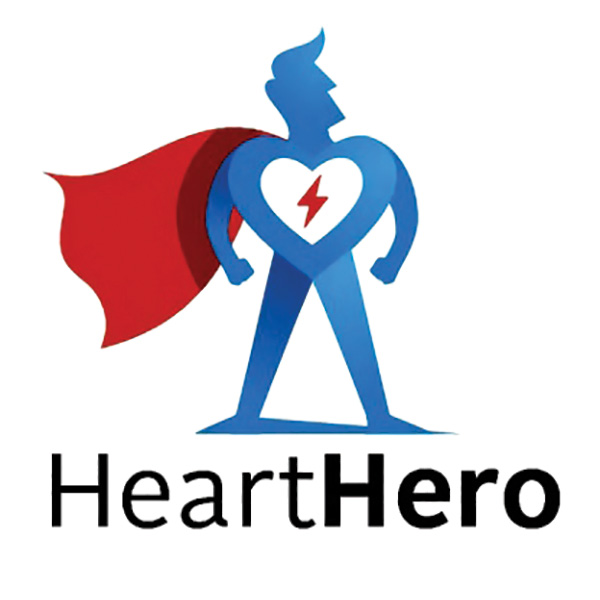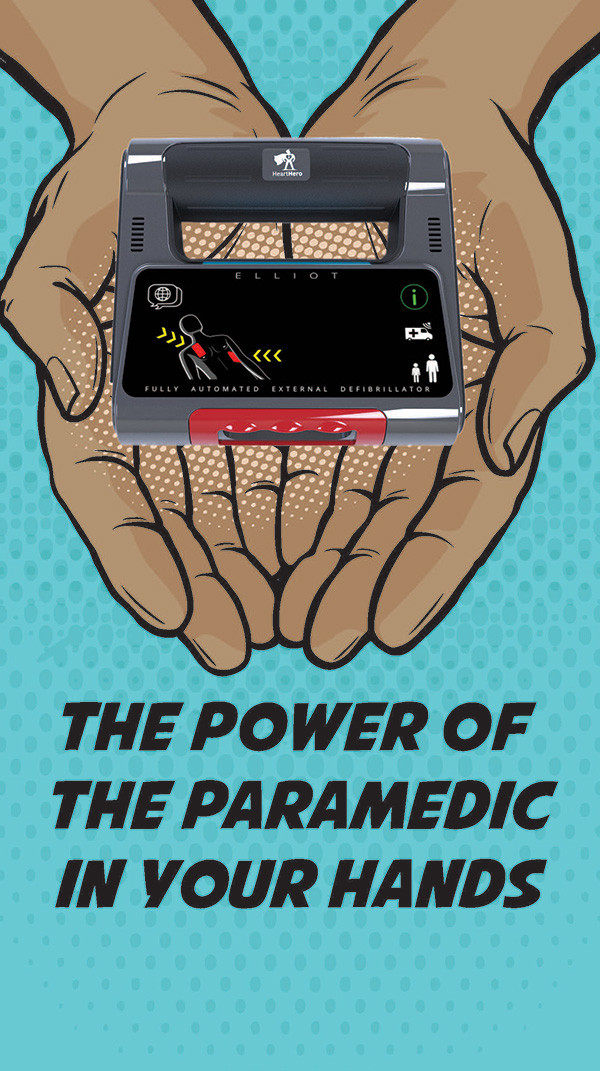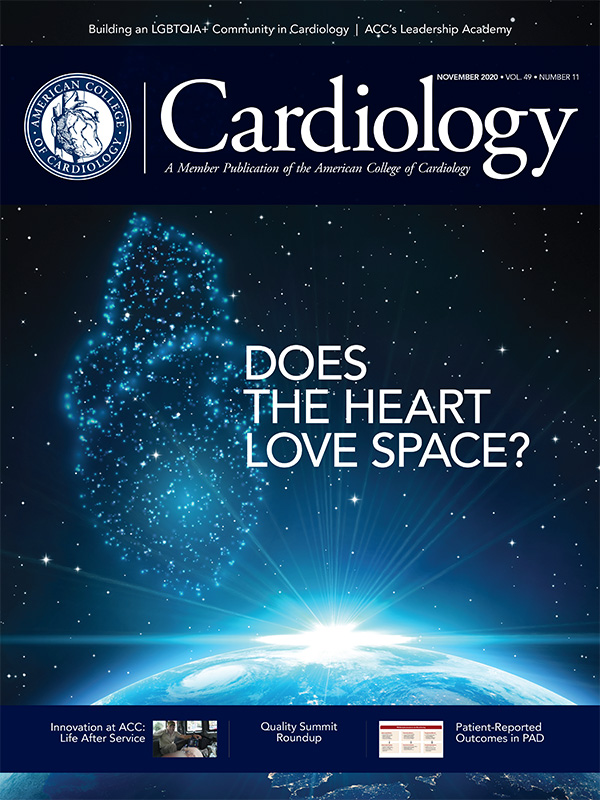Lessons From the Front: How What I Learned in the Military Applies to Entrepreneurship

In observance of Veterans Day, Cardiology sat down with Navy Veteran Gary Montague, now the founder and CEO of HeartHero, to talk about his military service and how it prepared him to be an entrepreneur.
HeartHero is committed to positively impacting the outcomes of sudden cardiac arrest and to save more lives through a novel, connected automated external defibrillator (AED).
Tell us about your military career. When did you join?
I joined the Navy in 1998 and got out in June of 2003. I served most of my time as a Scout Sniper Corpsman for the U.S. Marine Corps.
HeartHero was founded in 2016. What did you do between leaving the military and establishing HeartHero?
After my discharge from the military, I continued pursuing my interest in medicine and passion for helping people by becoming an emergency medicine physician assistant.
I also spent some time working as a medical officer for the Central Intelligence Agency (CIA). I served in multiple war zone tours and lived in some of the most austere and hostile environments in the world.
I ultimately left the CIA to start HeartHero in 2016.
The ACC Innovation Program is working to lead the digital transformation of cardiovascular health care delivery. Under the guidance of the College's Strategic Plan, the ACC Innovation Program ties together surveillance, engagement, thought leadership, and collaborations with industry and academic institutions to improve cardiovascular care. Click here to learn more.
The team relies on the experience and expertise of the ACC membership to advance projects and initiatives that ultimately optimize cardiovascular care and outcomes.
HeartHero's journey has taken it from winning the ACC.19 Innovation Challenge to pending regulatory approval for its innovative, miniaturized AED. Click here to learn more.
Did the military help prepare you for entrepreneurship?
Absolutely! I've learned everything I know about being a leader and entrepreneur through my time in the military.
We went through extensive leadership training in the Navy. A key lesson from the training that I continue to embrace is that a leader always makes sure the team is taken care of first, at all times.
This applies to all aspects of life. Mealtime is an example of this: the team ate first and leaders ate last. It helped us to understand that it's more about your friends and teammates next to you and not about you.
Boot camp is also a great equalizer. It's very humbling. It didn't matter if you were the most athletic or sharpest shooter. It helped us all let go of our ego.
Letting go of your ego is something I've found especially important in entrepreneurship.
Out of all the lessons you learned in the military, is there one that stands out the most?
Your assumption of the rules might not actually be the rules. Question everything and never come in with an assumption.
Is there a specific instance where you remember learning to question everything?
The ACC is proud to support its many members who are part of, or have been part of, the armed forces.
Thank you for your service.
During training times or non-war times, the Marine Corps holds Super Squad competitions. I was asked by my platoon to join their team and thought sure, why not. The first competition was internal for the company, and my team won. Then we won the battalion, the regiment and the division competitions.
I quickly rose through the ranks as one of the strongest members for my team – despite an ankle injury. I kept going through the competitions anyway and the other team members looked to that. Lead by example and never ask someone to do something you wouldn't do yourself.
In the final competition, our task was to assault a hill as fast as possible. Assaulting a hill is where your team leap frogs up a hill; "I'm up, they see me, I'm down," to gain position from the top.
Our team did the assault efficiently and seamlessly and made it up the hill quickly. We felt great about our performance.
The judge said our team had the most textbook, perfect assault they'd ever seen – but, we got second place.
We were shocked! Why not first place?
The directions were to assault the hill to get to the top as fast as possible. The team that won just ran up the hill and made it to the top really fast.
Our perception of the rules weren't what the rules actually were. We had just assumed that we had to complete an assault to get to the top and didn't question the rules.
This was my first real lesson about making assumptions about rules. Now, I never come with assumptions and question everything.
Is this lesson relevant to your practice in medicine?
It's absolutely relevant to the practice of medicine. You have to go into a room with a blank slate for each patient, ensuring that you don't hold any confirmation bias by only reading the chief compliant before seeing the patient.
For example, while a chief complaint of chest pain could just be heartburn, you have to ensure you're not missing a heart attack, aortic dissection, pulmonary embolism, pneumothorax or pericardial tamponade. Every person reading this article right now knows this.


In your role of leading HeartHero, are there any daily exercises you practice that you learned in the military?
Every morning, I wake up and think, "What's the worst thing that can happen today?" and then work backwards until I'm back at having a great day. That way I have a contingency plan for anything thrown our way.
I'm also consistently running the OODA loop – observe, orient, decide and act. This can be applied to any situation or decision, but a decision needs to be made. Indecision is one of the biggest killers in both combat and business. Make a decision on something, commit to it, and then pivot if needed and go through the OODA loop again.
How would you describe your leadership style?
My leadership style is very similar to that of Marcus Aurelius. I am always thinking of the worst-case scenarios and coming up with a contingency plan for each.
I always question everything.
I also look at the team's blindsides and make sure the team stays in alignment with our goal. A loss of alignment equals a loss of trust.
What is the one piece of advice you'd share with other entrepreneurs?
Never have a Plan B because it only distracts from Plan A. But you must have a contingency plan for Plan A in case things go sideways.
Clinical Topics: Arrhythmias and Clinical EP, Cardiovascular Care Team, Implantable Devices, SCD/Ventricular Arrhythmias
Keywords: ACC Publications, Cardiology Magazine, Military Personnel, Veterans, Veterans Health, United States Department of Veterans Affairs, Leadership, Patient Discharge, Entrepreneurship, Physician Assistants, Emergency Medicine, Defibrillators, Death, Sudden, Cardiac, Innovation
< Back to Listings


